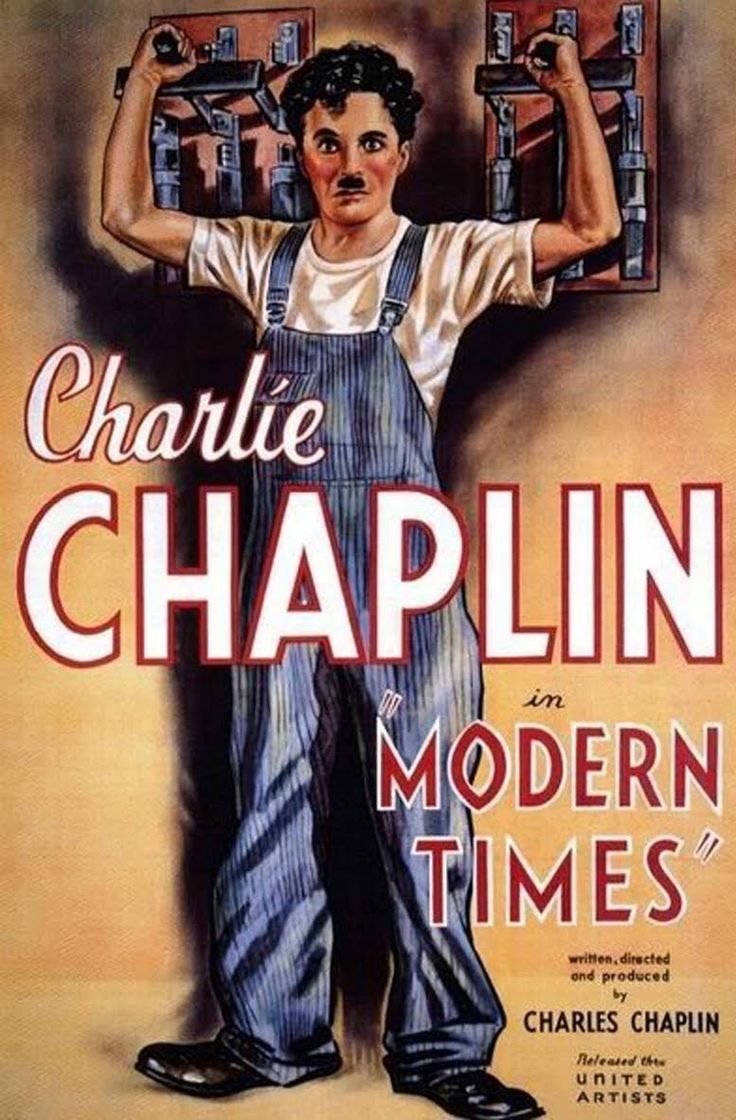Director: Charlie Chaplin
Cast: Charlie Chaplin, Paulette Goddard, Henry Bergman, Chester Conklin
Have I Seen it Before: Oh, sure.
Did I Like It: It’s probably fair to admit at this point that I’m one of those guys that’s never been 100% convinced that the advent of synchronized sound in motion pictures was an unassailably good idea. Sure, you can get an occasional Godfather or a Marx Brothers picture, but Dracula (1931) is essentially a 75-minute-long sleeping pill, and we all would collectively be doing a lot better in the twenty-first century if the Transformers pictures somehow even had less to say.
So, yes, Modern Times has a special place in my heart as the last hurrah for the silent comedy*. The moment the Tramp speaks, he begins** to disappear from us. But he’s going to go through some of his best hits before he irises out forever.
One might be bothered by the episodic nature of the film’s plot, and indeed much of the film’s runtime could have been cut up into one-reeler shorts, but considering live action shorts would eventually become a thing of the past***, it has a double dose of quaintness working for it. I’d say that anyone terribly hung up on that quality is missing the point that most of those shorts are great. The Tramp’s odyssey with factory work is one of his more iconic works, and I’ve seen this movie a dozen times over the last twenty years, and I still don’t know how he didn’t kill himself on those roller skates when he was working as a night watchmen****. This doesn’t even cover his trouble in jail, various types of adventures with Ellen (Goddard, truly the best of the Chaplin leading ladies), and his final floor show.
You may think of Chaplin amongst the gears, if you give Modern Times any thought at all. You should really take the whole thing in, and maybe, just maybe you’ll join me and the rest of the cool kids in our assessment that this whole talky fad will eventually pass.
*Characters do speak on occasion in the film, but only through technological intermediaries, in case any of us were unclear of how Chaplin felt about the talkies which were taking the foundation of his power out from under him.
**Chaplin insists that the Barber character in The Great Dictator (1940)—his first sound film after caving to the churning forces working against him—isn’t the Tramp, and we all have accepted that at face value. The man’s been dead for nearly fifty years. I think it’s time to admit that the Tramp had one last ride. We must do this for no other reason that if the Barber isn’t the Tramp, then Adenoid Hynkel is what the Tramp eventually became, and that’s more than a little depressing. That all should probably be reserved for my eventual review of Dictator, which I am dismayed to learn I have, at this moment, not written yet.
***Would Chaplin be making Youtube videos and eschew features all together if he were working today. One wonders…
****Which, incidentally, is a scenario that has—occasionally purposefully, and just as frequently by accident—drifted into my own work.

